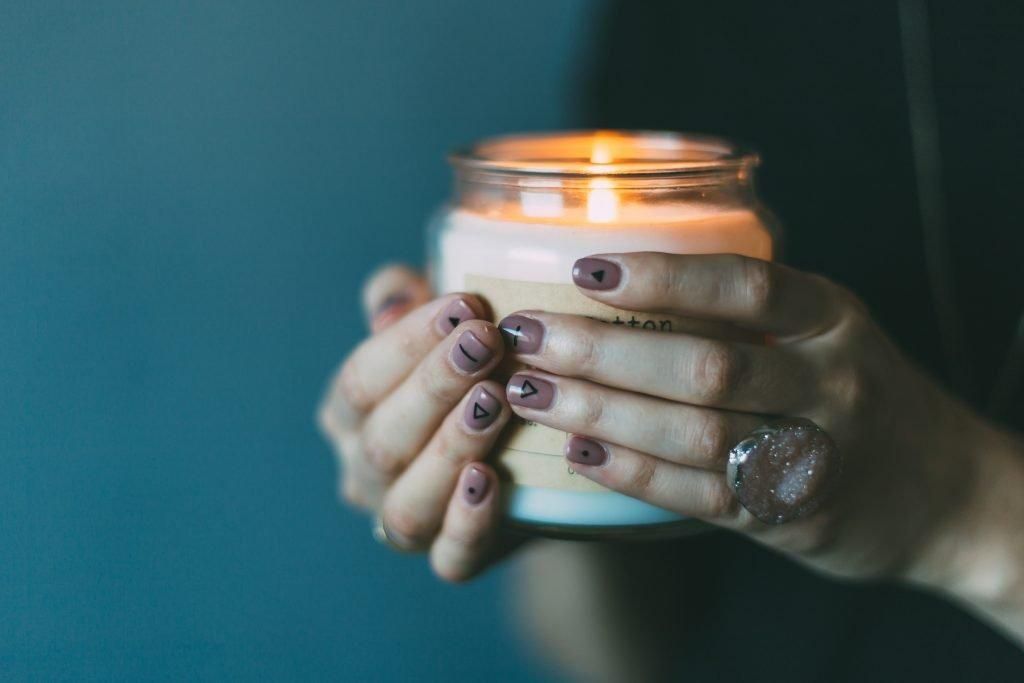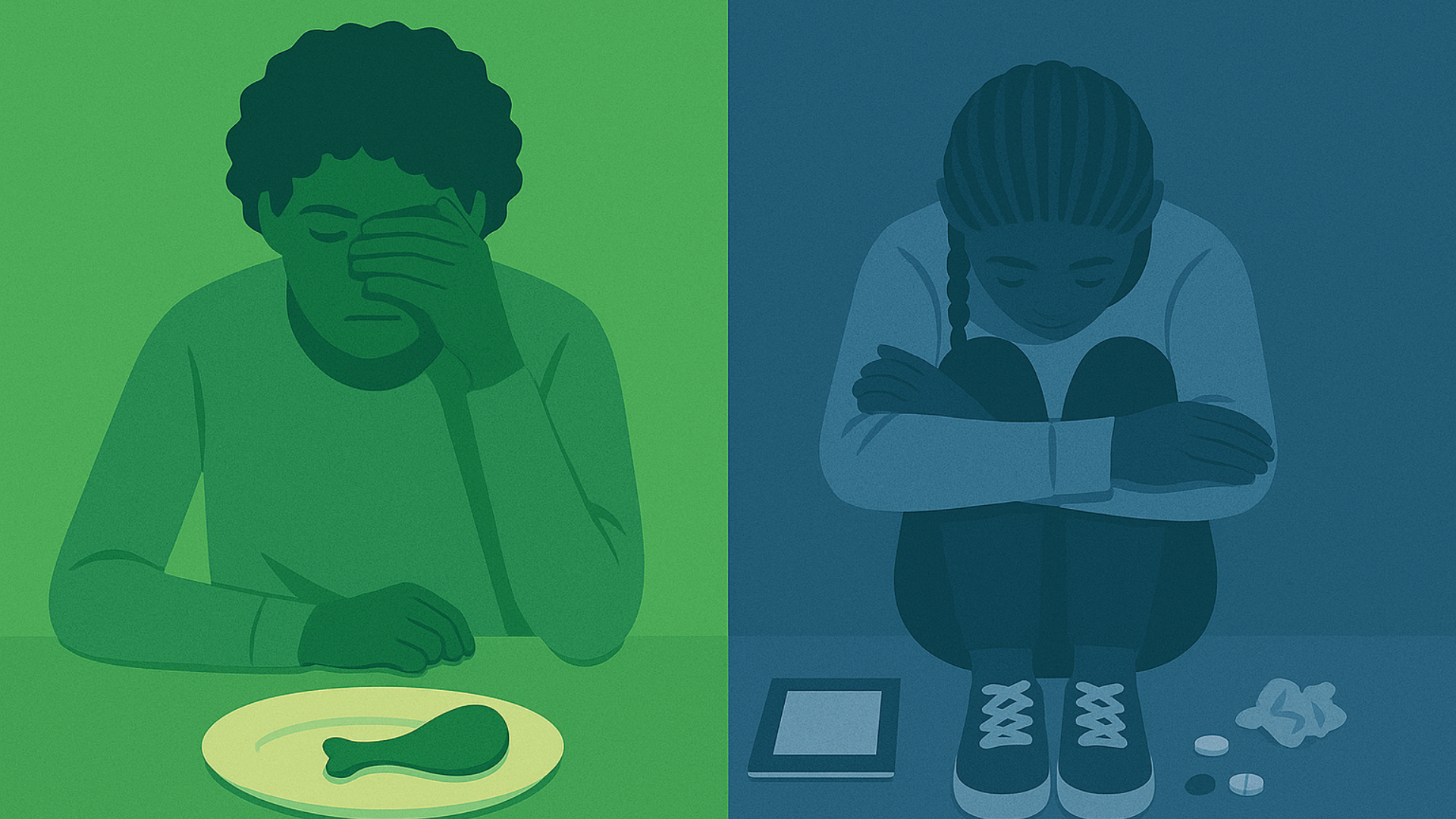Founder and CEO of Thrive Wellness, Kat Geiger, LCSW, CEDS, PMH-C Shares Her Personal Perinatal Loss Story and Healing Journey

We found out we were pregnant with our second baby in April 2008. Our shared journey through grad school together had been such hard work as young parents. So, the day my husband graduated with his PhD and I graduated with my master’s degree, we felt as though we had finally arrived. It was the perfect day to learn that we were expecting a baby. What a gift! Everything in our life at that point felt like an adventure, so we packed up our loft apartment, our baby girl, and our two dogs and headed to Florida for a well-deserved month-long summer vacation with family and friends before starting a new life in California. We had no place to live nor jobs lined up just yet, but not even these uncertainties could bring us down.
Come fall, we had found a new and more spacious place to live in California, new jobs, and a growing baby bump. I was so excited to be expecting at the same time as my sister for the second time in a row. It was one of those peak moments in life when you almost want to hold your breath in case the simple act of breathing skews things in the wrong direction. We had no reason to think anything with this pregnancy could go wrong since our first pregnancy was as perfect as could be. Our baby girl was healthy and thriving, and our new life was falling into place.
For reasons I still can’t explain, I woke up one day feeling as though something wasn’t right deep down in my gut. I cried and felt an urgent need to get to a doctor and visualize the baby via ultrasound. Once we were able to see a doctor and have our first ultrasound, I felt such a sense of relief. But then, the doctor looked a little too intently and a little too long at the image. She furrowed her brow and asked me to wait while she went to get another clinician, who also looked a little too intently and a little too long at the ultrasound. The doctor left the room again with her colleague and came back. She turned to me and said, “Something is wrong with the baby,” and that I would need to come back for more advanced imaging as soon as possible. Her words hung in the air as I lay there alone in a see-through hospital gown in a cold room with blinking, blinding fluorescent lights. My husband was nearby in the waiting room with our daughter, but it felt as though he was a million miles away. In fact, it felt like everyone was a million miles away for a very long time after that. Have you ever been surrounded by people yet somehow felt utterly and completely alone? I would soon come to know this feeling all too well.
What unfolded over the next several weeks was incredibly difficult. After what felt like forever, we had an advanced ultrasound. I had eaten well, slept soundly (on my left side as recommended), kept as calm as possible, and taken my prenatal vitamins religiously for the last several weeks in hopes of fixing whatever was wrong. There is seemingly a “right” and “wrong” way to do everything when you are expecting – particularly when your pregnancy is considered high-risk. I immediately expressed my fears and anxieties to our ultrasound tech. I let her know that while I realized that she could not share anything specific with me, I would be so grateful if she could just give me a signal if something was seriously wrong. We agreed that she would say, “I’m going to have the radiologist take a second look” if this were the case, which would not jeopardize her license.
While she meticulously scanned every part of my baby’s little body, we chatted about our toddlers, where we went to school, vacations we had enjoyed, and so on. Then, she suddenly stopped scanning, held my hand, looked at me, and said, “I’m going to have the radiologist take a second look.” I immediately broke down and she squeezed my hand again. The radiologist came in within ten minutes. She was extremely kind but extremely busy. She asked us to go to lunch while she finished up with some appointments, promising that we would get some answers shortly. She looked at me and said, “I know asking you to go to lunch and wait will be very hard for you, but I really want to be able to give you some answers today and this is the only way. “
It felt like eons passed over lunch. We returned and finally heard the devastating news from the radiologist. Our baby boy had a condition called idiopathic hydrops fetalis. His tiny heart was failing despite no structural abnormalities and his entire body was swollen. Throughout the next several weeks, we underwent test after test after test. Even the most advanced genetic tests came back as completely normal. No chromosomal abnormalities nor partial chromosomal deletions were detected – nothing that provided answers.
Thankfully, we were able to work with the most wonderful perinatologist, Dr. Larry Newman, MD at Kaiser Permanente in Oakland, California. He had also cared for me during my first pregnancy. A familiar face and compassionate clinician were exactly what I needed. I asked him what the chances of survival for the baby were. He estimated between 10 – 20% and offered to terminate the pregnancy, to which I declined. I was determined to do everything in my power to be as healthy as humanly possible in hopes of saving my baby. I was desperate. I read every piece of literature about every possible cause of idiopathic hydrops fetalis. I saw the doctor every other day for ultrasounds and it seemed like we ruled out 10 different possible diagnoses each visit. He graciously investigated each possibility and offered every obscure genetic test I requested. With every negative test, I began obsessing about the food I was putting in my body a little more. It felt like the only thing I could control in my life. I began growing my own fruits and vegetables, purchasing eggs from pastured hens only, and eating organic free-range chicken and organic grass-fed, free-range beef exclusively. Saving my baby boy was all I could think about. If medical experts couldn’t come up with a cause for the condition, I was determined to do so myself. I felt like the food I was consuming had to be to blame. I could no longer enjoy meals and took pictures of everything I cooked. Because I spent all my time researching empirical data and journal articles on idiopathic hydrops fetalis, I felt like I was not paying enough attention to my toddler.
Finally, at the end of October during an appointment with Dr. Newman, he visualized the baby on the ultrasound once again. This time, he held my shoulder and told me “I’m sorry kiddo, he’s gone.” My baby boy’s heart had stopped beating. What was I doing when he left this world? Was I in the kitchen, gardening, or watching “ The Bachelor ?” His passing was silent, quiet, and unnoticed. There was certain unspoken guilt around this for me.
Dr. Newman asked me to go home, get packed, and meet him at the hospital that evening for an induction. I expected to be granted some sort of grace in my labor as if the universe was going to make this one easy for me since our circumstances were so sad. Unfortunately, mother nature doesn’t pay mind to this sort of thing and labor and delivery is still labor and delivery. Delivery was incredibly difficult and painful, as my baby was born breach. Gratefully, in addition to Dr. Newman, there were other special people who helped me through the experience. A nurse named Malou stands out in my memory as being especially compassionate, kind, and attentive.
Even though I had educated myself on all the research and I knew that seeing him would be the best thing for me, I couldn’t do it. I asked for him to be wrapped in a blanket completely so I could hold him without looking. He was warm, wet, and still. We named him London Alexander.
The next day we were able to go home from the hospital. I was escorted down the hall of the maternity floor in a wheelchair as I left empty-handed. Somehow as we exited, we ended up on an elevator with another family leaving the hospital with their new baby. I closed my eyes. I just couldn’t look. It was one of the most painful moments of my life. I felt alone again – still.
I delivered baby London on a Thursday. I can’t remember much about the following weekend except that my milk came in on Sunday, leading to a sense of betrayal by my own body. Early Monday morning, Dr. Newman called. “This is your last opportunity to see London. They’re going to be performing his autopsy later today,” he said. I knew I had to see him. When I arrived back at the hospital, Dr. Newman met me in a conference room where they had placed London in a bassinet. He was swaddled in a blanket and wore a little hat. Dr. Newman brought a camera and I agreed to let him take a couple of pictures for us to keep. I said goodbye to my son that day and I haven’t seen him since.
I struggled for a long time following his loss. I obsessed over clean eating and spent hours a day pouring over London’s autopsy, lab work, and advanced genetic test results. I continued to seek answers in academic and medical journals. I felt that if I ate healthy enough and found answers, I could prevent this from ever happening again. I never got the answers that I was looking for and eventually, meticulous meal planning became less important.
The grieving process was trying. Have you ever heard a song that doesn’t feel like it has an ending? The music just kind of fades out slowly. That’s what this grieving process was like for me – a song that lingers and finally fades out slowly. Over time, my mind healed, my body healed, and the obsession of digging to find out what went wrong gave way to ballet recitals and t-ball games for my daughter.
Being a therapist sometimes means that others assume I can figure it all out for myself, but that’s a common misconception. I was very fortunate to have a strong support system through my family, friends, and therapist – all of who supported me in different ways and helped me heal in my own time and on my own terms. It was a blessing to have a built-in support system, but not all are as fortunate. And, even though I was surrounded by support, I often felt alone and misunderstood because I did not know anybody who had experienced anything similar.
Reflecting on my own experience opened my eyes, mind, and heart to a need being unmet on a mass scale. When I established Thrive Wellness Reno, I knew I wanted to help families suffering from the tragedy of pregnancy or infant loss and simultaneously soften the stigma around seeking therapeutic support. I am so proud of our perinatal mental health program which not only offers outpatient therapy for individuals and couples, but also a community-oriented and complimentary Perinatal Loss and Grief Support Group that provides participants with an opportunity to connect with others who are recovering from similar circumstances. They say it takes a village to raise a child. I believe it also takes a village to grieve and heal from the loss of one.








